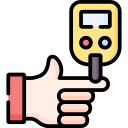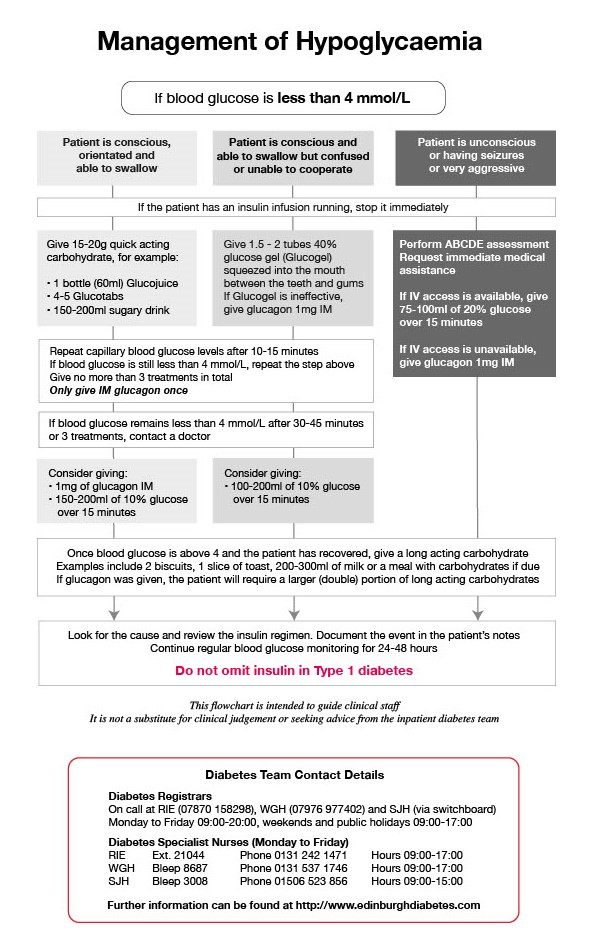A ‘one off’ hypoglycaemic episode (hypo) in a patient on insulin can occur and may need monitored. Please consider the below and always consider causes in recurrent hypoglycaemia:
- Acute illness
- Change in diet
- Change in medication – have we started a medication? Are we giving the patient a medication they are prescribed at home but that they do not take or take a different dose?
- Lipohypertrophy at insulin injection site.
This may be part of a more longstanding pattern of recurrent hypoglycaemia – consider sending HbA1c and asking the patient whether they ‘feel’ their hypos (a good question is ‘at what blood glucose level do you notice you are low’? Be concerned if the answer is 3 or less).

